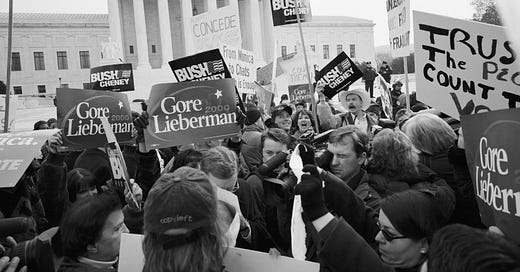Spotify | Apple | YouTube | Amazon
Hello listeners,
We’ve got a new episode today that we are very excited about. It’s the first of a three-parter that’s both fascinating and quite fun.
But first, a quick announcement:
Megan Phelps-Roper and I (this is Andy) are going to be speaking at this year’s Festival of Dangerous Ideas in Sydney, Australia. If you or a pal live in Australia, please come out and say hello. The festival is truly one-of-a-kind. Here’s how festival director Danielle Harvey describes their mission:
“What people consider dangerous is always evolving, and we respond to the times. I think the Festival of Dangerous Ideas exists for times such as these. There are increasing complexities, and we need time and a place where we can robustly test ideas. I think at a time when we are surrounded by bad ideas and bad faith, where information is cheap and shallow, we need a place where we can come together and be curious.”
Guests this year include Masha Gessen, Coleman Hughes, Roxane Gay, Jean Twenge, Jem Bendell, and many others. Click here for tickets and more info.
Okay, on to today’s show:
Claims that a US election was rigged, fraudulent, illegitimate, or stolen are not new. But in recent years—despite the fact that our elections have grown increasingly secure—these claims have grown louder and more impassioned. Today, we begin our look back on past claims of stolen elections in American history, in the hopes that understanding them in their context will help shed light on our current political moment—and where we might be headed next.
In this first installment, we speak to Megan McArdle, former writer for the Atlantic and current columnist at the Washington Post, about the stolen election claims in both the 1960 and 2000 elections.
Parts 2 and 3 will be available soon. If you’d like early access to them as they’re ready, please consider becoming a paid subscriber. For just a few bucks a month, you help us keep the lights on over here.
Thanks as always,
Andy (and Matt).








Another twist to the Bush v Gore recount was that it was actually completed after the fact by the media. From what I remember, you could get either of them win, depending on the recount rules you selected; however, Bush would have won under Gore's proposed rules and Gore would have won under Bush's.
Great episode. One extra piece of context. Gore won the nationwide popular vote by more than 500,000 votes. And while that doesn't matter to outcome, it *did* affect how the Bush White House governed. David Frum has written that the White House was concerned about legitimacy and very focused on winning the popular vote in 2004. Trump, in contrast, didn't care about that at all.